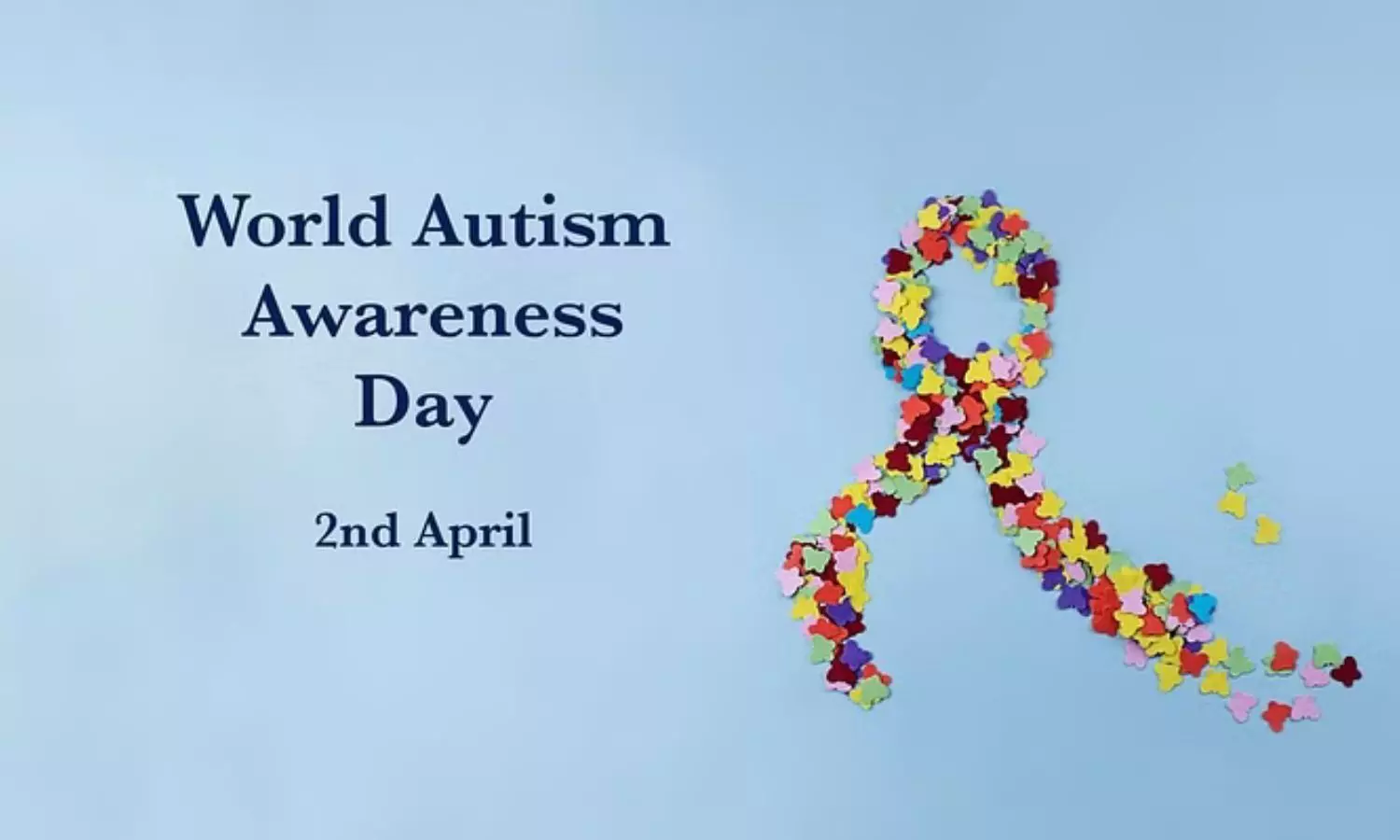World Autism Awareness Day 2024: Empowering Autistic Individuals and Dispelling Myths
Discover the goals for autism awareness and the steps towards creating an inclusive society for autistic individuals.
image for illustrative purpose

Every year on April 2, the world observes World Autism Awareness Day (WAAD), now in its 17th year. Established by the United Nations in 2007, WAAD aims to champion the rights of autistic individuals and dispel misconceptions surrounding autism. Despite progress, stereotypes persist, such as the belief that autistic individuals cannot speak, live independently, or excel academically. However, autism exists on a broad spectrum.
Early intervention with appropriate therapy can significantly impact the course of autism. Through early support, children can improve their developmental skills, learn effective communication, foster social interactions, and enhance self-regulation abilities.
How common is autism in India?
In India, the incidence of autism has been consistently rising. As per a recent study featured in the Indian Journal of Pediatrics, the estimated prevalence of autism in the country stands at approximately 1 in 68 children. Boys are disproportionately affected by autism compared to girls, with a male-to-female ratio of about 3 to 1.
How is autism diagnosed?
The diagnosis of autism typically involves a thorough evaluation conducted by a team of healthcare professionals, such as developmental pediatricians, psychologists, and other specialised experts. This assessment encompasses behavioural observations, interviews with parents or caregivers, and the administration of standardised assessments.
What causes autism?
Although the precise cause of autism remains unknown, studies indicate that a combination of genetic and environmental influences likely play a role in its onset. Ongoing research endeavours aim to deepen our understanding of the underlying causes of autism.
Autism awareness goal
World Autism Awareness Day 2024 underscores the importance of creating an environment where autistic individuals can flourish. This includes ensuring access to early diagnosis and intervention, quality education, supportive employment opportunities, and mental health support. By prioritizing these aspects, we can support autistic individuals in reaching their full potential and leading fulfilling lives.
Understanding autism
Autism Spectrum Disorder (ASD) is a complex developmental disability that manifests in various ways, affecting social interaction, communication, and behaviour. It's crucial to recognize that autism exists on a spectrum, with symptoms ranging from mild to severe. Contrary to common misconceptions, individuals with autism have diverse abilities, strengths, and perspectives.
Challenges in social interaction
One of the hallmark features of autism is challenges in social interaction. Autistic individuals may find it difficult to understand social cues such as body language, facial expressions, and tone of voice. This can lead to struggles in interpreting social situations and responding appropriately. Additionally, initiating and maintaining conversations can be challenging, as individuals may have difficulty with turn-taking and understanding sarcasm or jokes. While some autistic individuals may prefer solitude, others desire social connection but find it overwhelming.
Communication difficulties
Communication challenges are common among individuals with autism. Speech delays may occur, resulting in delayed language development or difficulty forming complete sentences. Echolalia, the repetition of words or phrases heard from others, is also observed in some cases. Autistic individuals may struggle to express their needs clearly, relying on gestures or becoming frustrated when unable to communicate effectively. Furthermore, understanding and using nonverbal communication such as gestures and facial expressions can be challenging for some individuals.
Repetitive behaviours and interests
Repetitive behaviours, known as stereotypies, are characteristic of autism. These behaviours may involve repetitive movements of the body or a fixation on specific routines or rituals. Autistic individuals often find comfort and predictability in adhering to these routines, becoming upset if they are disrupted. Additionally, intense focus on particular topics or hobbies is common, with individuals dedicating significant time and energy to their interests.
Sensory sensitivities
Many autistic individuals experience heightened or blunted sensitivities to sensory stimuli. Some may find certain sounds, textures, or smells overwhelming, leading to discomfort or distress. On the other hand, others may exhibit a weaker response to sensory input, appearing unfazed by loud noises or bright lights. These sensory sensitivities can significantly impact daily life and may require accommodations to manage effectively.
Importance of early intervention
Early diagnosis and intervention are crucial in supporting individuals with autism. Interventions such as Applied Behavioural Analysis (ABA), speech therapy, occupational therapy, and social skills training can help individuals develop essential skills and improve their quality of life. Early intervention programs have been shown to significantly impact developmental outcomes, highlighting the importance of timely support.
Promoting inclusion and understanding
Raising awareness about autism is essential in promoting inclusion and understanding within society. By dispelling misconceptions and fostering a deeper understanding of autism, we can combat stigma and reduce social isolation and discrimination.
By recognizing the diverse abilities and strengths of autistic individuals and providing appropriate support and resources, we can promote their well-being and enable them to thrive. World Autism Awareness Day 2024 serves as a reminder of the importance of advocacy, education, and acceptance in creating a world where all individuals, regardless of their neurodiversity, are valued and included.

